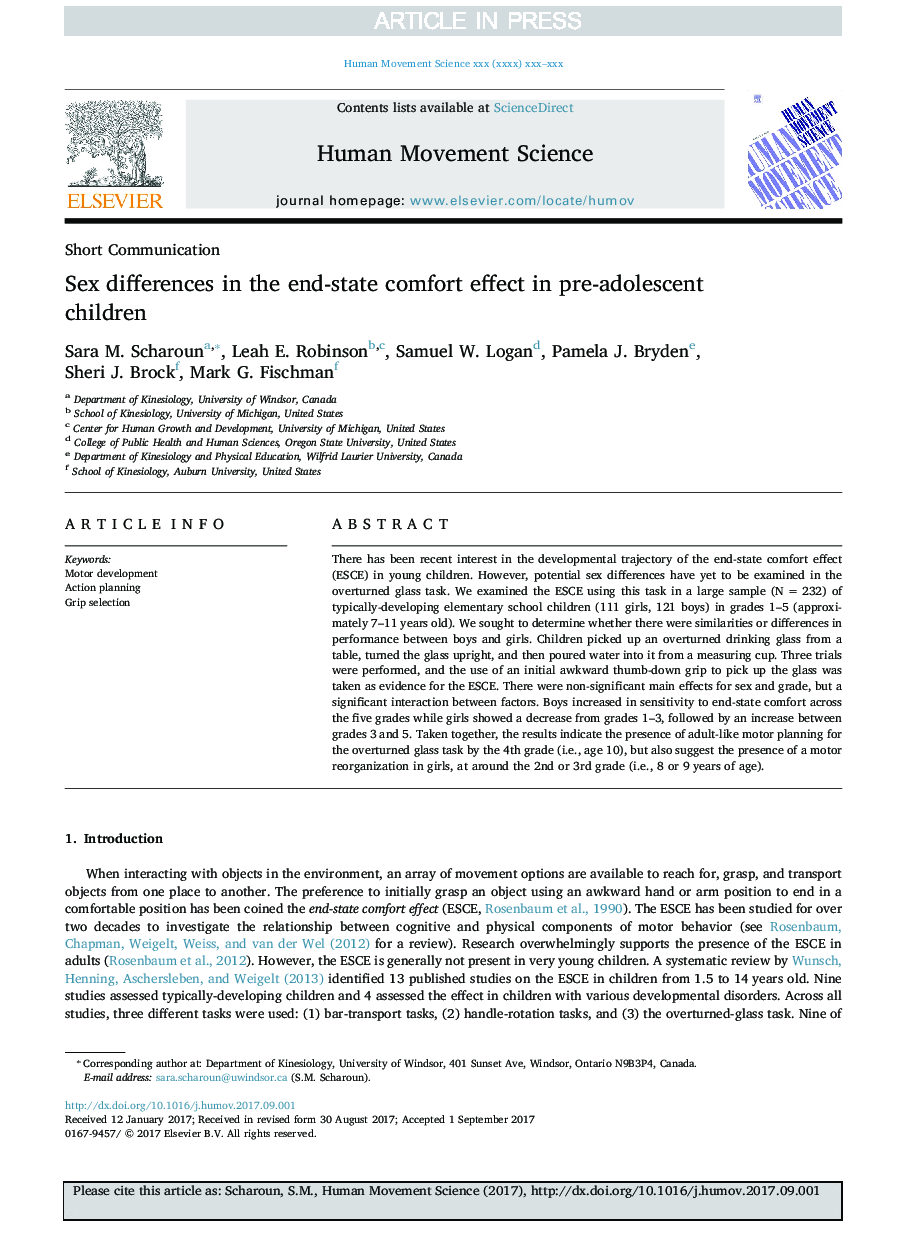| Article ID | Journal | Published Year | Pages | File Type |
|---|---|---|---|---|
| 7291029 | Human Movement Science | 2018 | 7 Pages |
Abstract
There has been recent interest in the developmental trajectory of the end-state comfort effect (ESCE) in young children. However, potential sex differences have yet to be examined in the overturned glass task. We examined the ESCE using this task in a large sample (NÂ =Â 232) of typically-developing elementary school children (111 girls, 121 boys) in grades 1-5 (approximately 7-11Â years old). We sought to determine whether there were similarities or differences in performance between boys and girls. Children picked up an overturned drinking glass from a table, turned the glass upright, and then poured water into it from a measuring cup. Three trials were performed, and the use of an initial awkward thumb-down grip to pick up the glass was taken as evidence for the ESCE. There were non-significant main effects for sex and grade, but a significant interaction between factors. Boys increased in sensitivity to end-state comfort across the five grades while girls showed a decrease from grades 1-3, followed by an increase between grades 3 and 5. Taken together, the results indicate the presence of adult-like motor planning for the overturned glass task by the 4th grade (i.e., age 10), but also suggest the presence of a motor reorganization in girls, at around the 2nd or 3rd grade (i.e., 8 or 9Â years of age).
Keywords
Related Topics
Life Sciences
Neuroscience
Cognitive Neuroscience
Authors
Sara M. Scharoun, Leah E. Robinson, Samuel W. Logan, Pamela J. Bryden, Sheri J. Brock, Mark G. Fischman,
